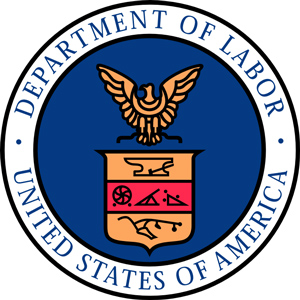April 11, 2020 - WASHINGTON, DC – The U.S. Department of Labor’s Employment and Training Administration (ETA) on Friday announced the  publication of Unemployment Insurance Program Letter (UIPL) 17-20, which provides further guidance to states as they implement the Coronavirus Aid, Relief, and Economic Security Act (CARES Act), including the Pandemic Emergency Unemployment Compensation (PEUC) program.
publication of Unemployment Insurance Program Letter (UIPL) 17-20, which provides further guidance to states as they implement the Coronavirus Aid, Relief, and Economic Security Act (CARES Act), including the Pandemic Emergency Unemployment Compensation (PEUC) program.
“The CARES Act provides valuable relief to American workers facing unemployment, including unemployed workers who may not otherwise be eligible for regular Unemployment Insurance benefits,” U.S. Secretary of Labor Eugene Scalia said. “The guidance issued to states today follows significant guidance and support the Department of Labor has already provided to our state partners, including $500 million in emergency administrative funding.”
Under the Pandemic Emergency Unemployment Compensation program, states can provide up to 13 weeks of federally funded benefits to qualified individuals who:
- have exhausted all rights to regular compensation under state law or Federal law with respect to a benefit year that ended on or after July 1, 2019;
- have no rights to regular compensation with respect to a week under any other state UC law or Federal UC law, or to compensation under any other Federal law;
- are not receiving compensation with respect to a week under the UC law of Canada; and
- are able to work, available to work, and actively seeking work, although states must offer flexibility on “actively seeking work” where there are COVID-19 impacts and constraints.
The cost of PEUC benefits is 100% federally funded. States may not charge employers for any PEUC benefits paid. Implementation costs and ongoing administrative costs are also 100% federally funded.
In addition to the PEUC program, ETA has provided guidance to the states regarding two additional CARES Act unemployment programs. Under Federal Pandemic Unemployment Compensation, states will administer an additional $600 weekly payment to certain eligible individuals who are receiving other benefits. The Pandemic Unemployment Assistance (PUA) program assists individuals who do not qualify for regular unemployment compensation and are unable to continue working as a result of the coronavirus, including self-employed workers, independent contractors, and gig workers.
For more information on UIPLs or previous guidance, please visit https://wdr.doleta.gov/directives/.
For Department resources on coronavirus, please visit https://www.dol.gov/coronavirus.
For more information about coronavirus, please visit https://www.cdc.gov/coronavirus/2019-ncov/.
The Employment and Training Administration administers federal job training and dislocated worker programs, federal grants to states for public employment service programs, and unemployment insurance benefits. These services are primarily provided through state and local workforce development systems.
The mission of the Department of Labor is to foster, promote and develop the welfare of the wage earners, job seekers, and retirees of the United States; improve working conditions; advance opportunities for profitable employment; and assure work-related benefits and rights.
Source: DOL








